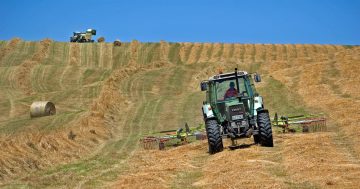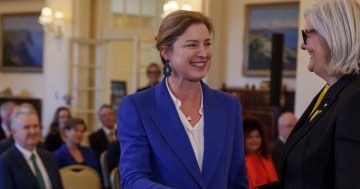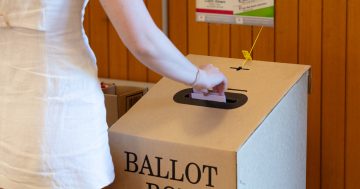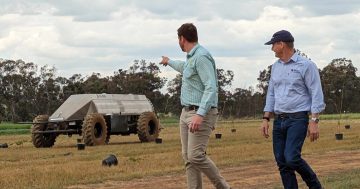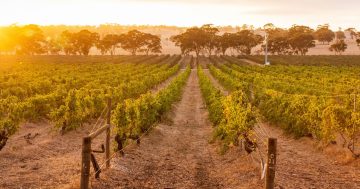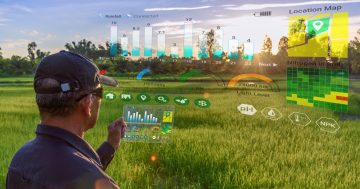
Tasmania’s Primary Industries Minister Jo Palmer celebrates National Agriculture Day with recipients of a partnership program. Photo: Facebook/Jo Palmer MLC.
The Tasmanian Government has celebrated National Agriculture Day, lauding the primary industry sector’s contribution of $2.34 billion to the state’s economy.
The government has now invested $4 million into its joint Farm Business Resilience Program, to help the sector weather the expected consequences of climate change.
To facilitate the growth of the state’s agricultural sector while meeting the targets of its renewable energy transition, the Tasmanian Government has been increasing funding to emissions-focused programs and broadening the capacity of its biosecurity through a new five-year strategy that seeks to prevent any future threats from pests and diseases.
Minister for Primary Industries and Water Jo Palmer said, since 2017, the government had spent $4.15 million supporting the primary production sector through the Strategic Industry Partnerships Program with projects including the TAPG Ag Innovation Expo and the Tasmanian Farmers and Graziers Association biosecurity program.
“Together with industry and the Commonwealth, we are also taking steps to further enhance traceability, through electronic identification of sheep and goat herds,” she said.
“A further $2 million has been committed through the 2023-24 State Budget into the Agricultural Innovation Fund, which has already supported research into smoke taint in wine grapes and using native seaweed as a feed supplement to reduce livestock emissions.
“And there’s further support for producers through an extension of the on-farm water infrastructure rebate scheme, providing financial assistance to buy, install or repair damaged on-farm water infrastructure.”
The island state’s announcement came a week after 14 local premium food and beverage producers were showcased at the annual China International Import Expo in Shanghai, which was part of its 2023-2024 Trade Action Plan.
Between 5 and 10 November, the state had 14 of its primary producers in China – the largest import market in the world and Tasmania’s top export destination ($1.35 billion per year).
Premier and Minister for Trade Jeremy Rockliff said the government was committed to the goal of growing trade to $15 billion a year by 2050.
“Increasing our presence at trade shows and taking Tasmanian produce to the world will allow us to do so,” he said.
“China remains an important market for Tasmania and this event follows trade events and delegations we have supported over the past two years to the United Kingdom, Japan, Korea, Vietnam, Singapore and New Zealand.”



